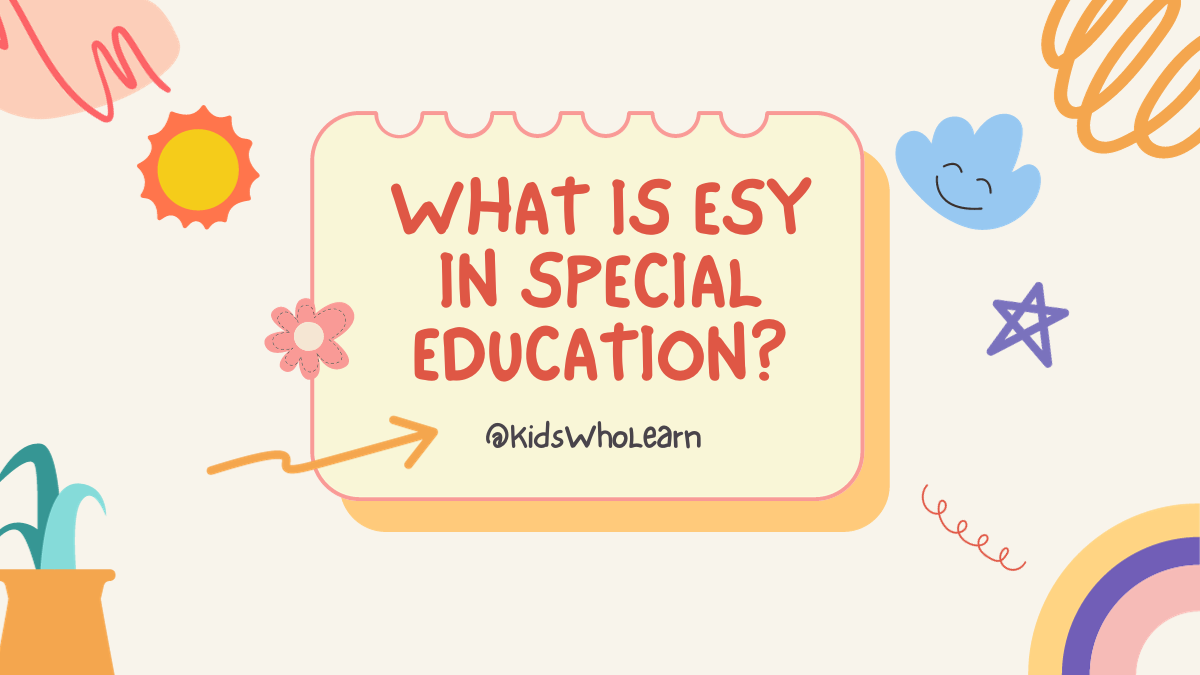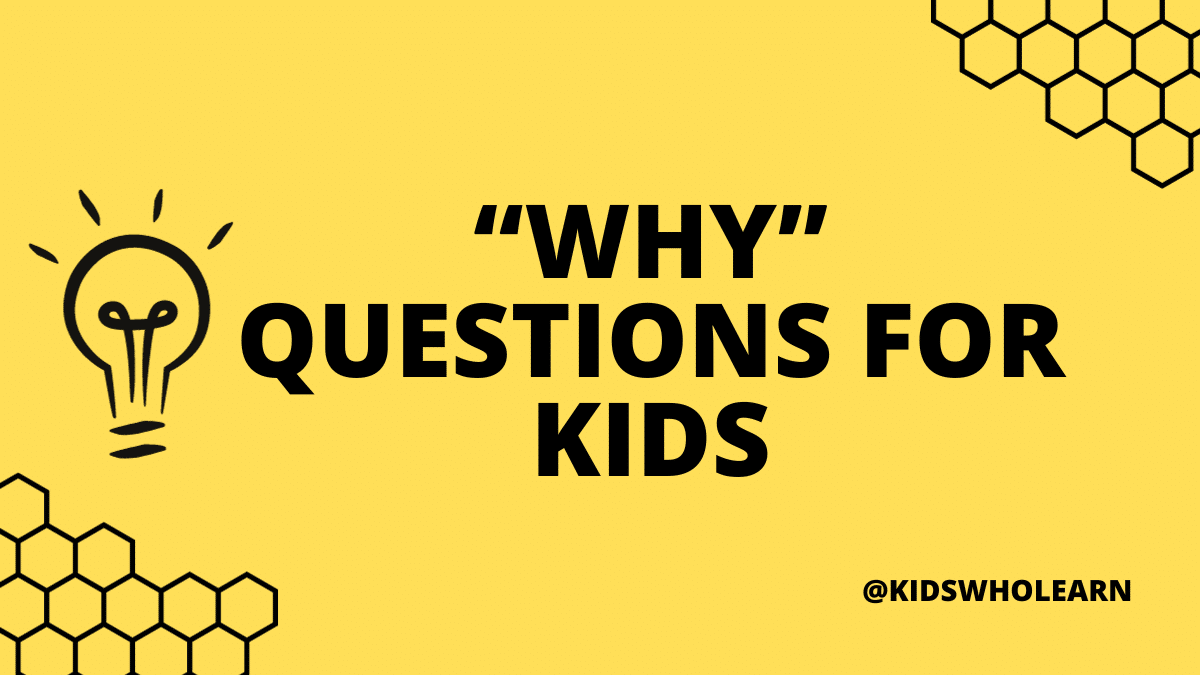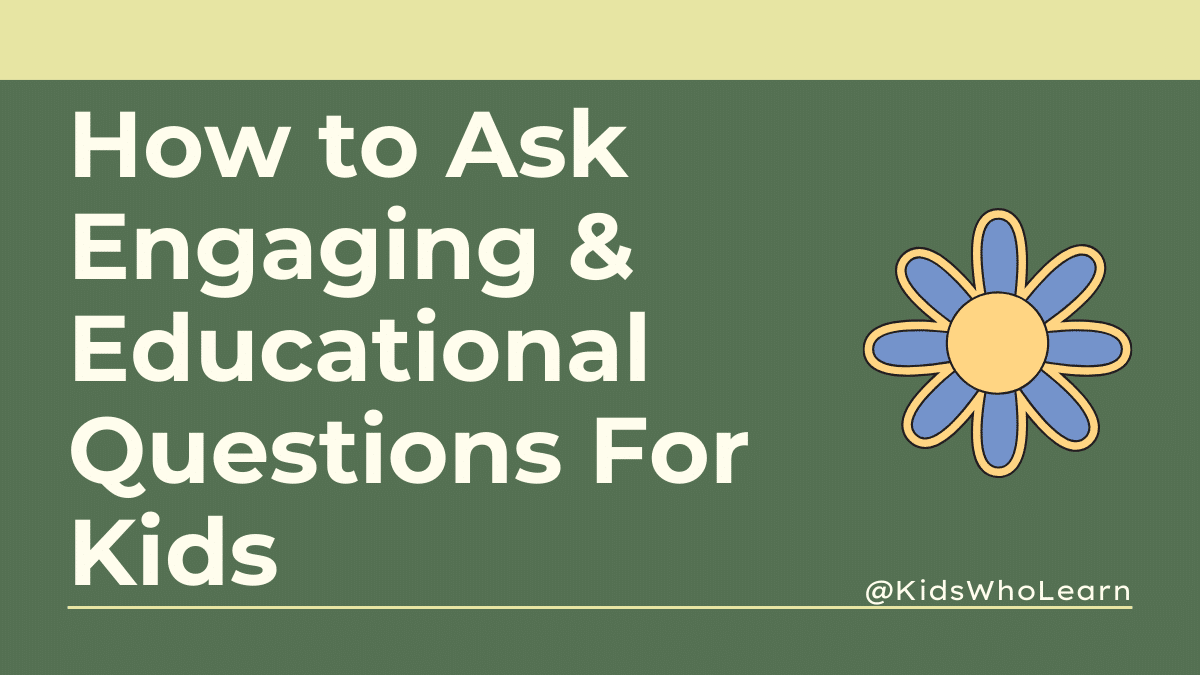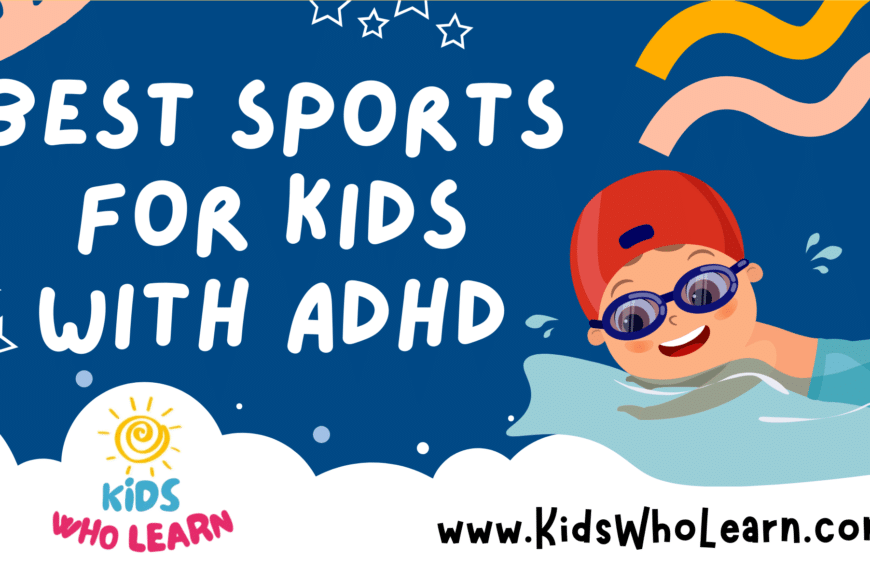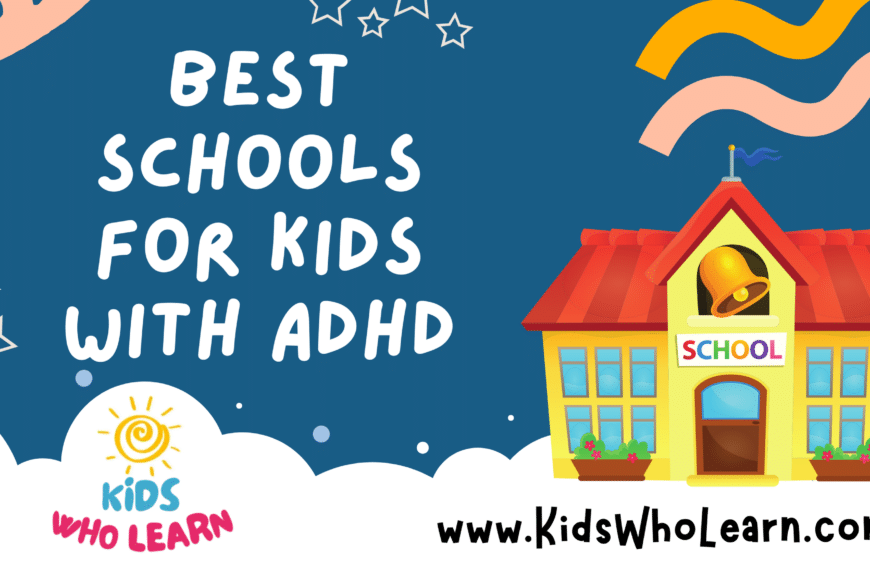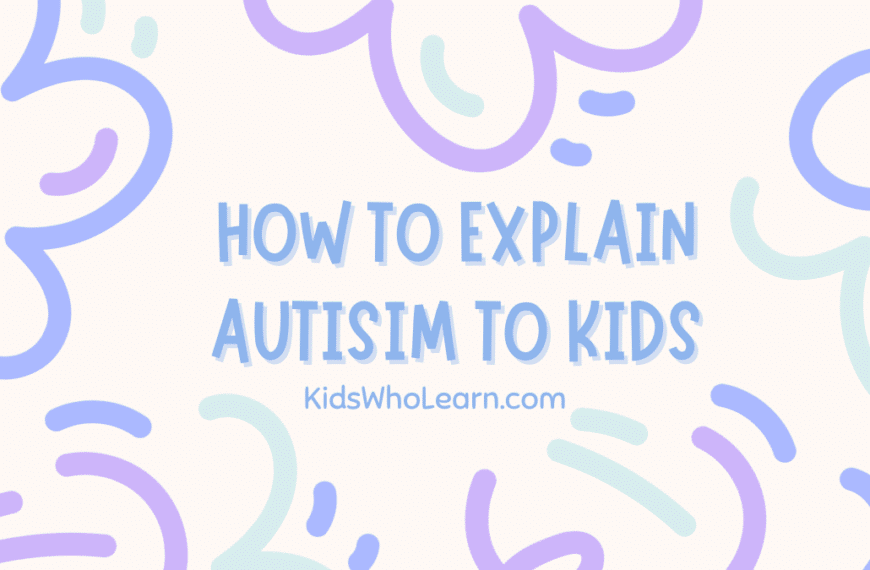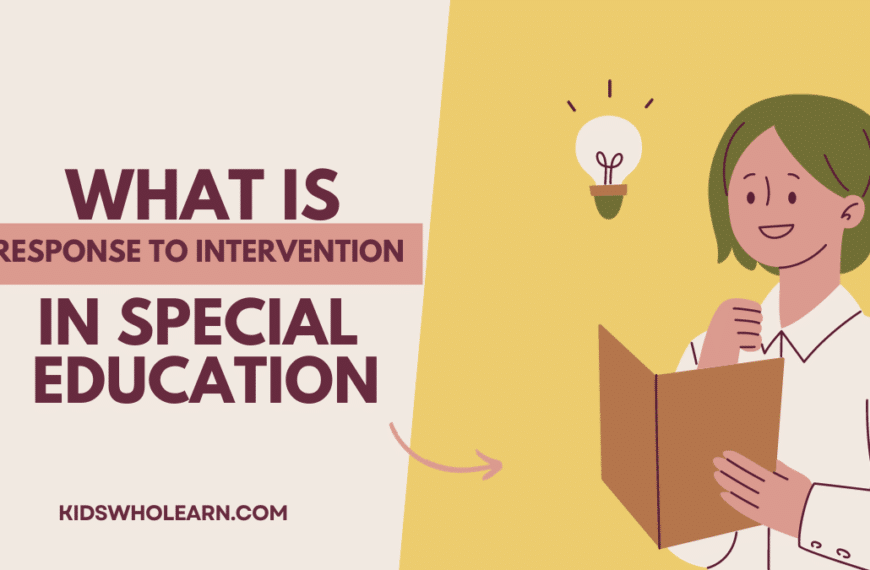If you or someone you know has a child with special needs, you may have heard of Extended School Year (ESY) services. ESY is a program that provides special education services to eligible students during the summer or other extended breaks from school. The goal of ESY is to prevent regression of skills and knowledge that students with disabilities have gained during the school year.
Understanding ESY in special education is important for parents and caregivers to ensure that their child receives the appropriate services to maintain their progress and growth. ESY services are not the same as summer school or day camp; they are specifically designed to meet the unique needs of students with disabilities. Eligibility for ESY services is determined by the student’s Individualized Education Program (IEP) team and is based on the student’s individual needs and goals.
Key Takeaways
- ESY is a program that provides special education services to eligible students during extended breaks from school.
- ESY services are designed to prevent regression of skills and knowledge that students with disabilities have gained during the school year.
- Eligibility for ESY services is determined by the student’s IEP team based on the student’s individual needs and goals.
Understanding Esy in Special Education
If you have a child with special needs, you may have heard of Extended School Year (ESY) services. ESY is a program that provides special education and related services to students with disabilities during the summer months or other extended breaks from school.
ESY services are designed to prevent a student from losing critical skills that they have learned during the school year. For example, a student with a learning disability may need to continue working on their reading skills throughout the summer to prevent regression.
The decision to provide ESY services is made on a case-by-case basis by the student’s Individualized Education Program (IEP) team. The IEP team considers the student’s progress and potential for regression, as well as any unique circumstances that may affect the student’s ability to maintain their skills.
ESY services can include a variety of educational and related services, such as academic instruction, speech and language therapy, occupational therapy, and physical therapy. These services are provided in a variety of settings, including schools, community centers, and even in the student’s home.
It’s important to note that ESY services are not the same as summer school. ESY services are tailored to meet the individual needs of each student with a disability, while summer school is a more general program that is open to all students.
Overall, ESY services can be an important part of a student’s special education program. If you think your child may benefit from ESY services, talk to your child’s IEP team to see if they are eligible.
Importance of Esy
If you have a child with special needs, you know that the education system can be challenging to navigate. One of the most important aspects of special education is Extended School Year (ESY) services. ESY services are available to students with disabilities who require additional support during the summer months.
ESY services are critical for students with disabilities because they help prevent regression. Without these services, students may forget skills they learned during the school year. This can lead to a loss of progress and make it more difficult for them to catch up when they return to school in the fall.
In addition to preventing regression, ESY services can also help students make progress. During the summer months, students have more time to focus on specific skills and goals. ESY services can be tailored to meet the individual needs of each student, which can help them make significant strides in their education.
ESY services can also provide much-needed support to families. Caring for a child with special needs can be challenging, and ESY services can help alleviate some of the stress. By providing additional support during the summer months, ESY services can give families a break and help them recharge for the upcoming school year.
Overall, ESY services are a critical component of special education. They help prevent regression, promote progress, and provide support to families. If your child is eligible for ESY services, it’s important to take advantage of them to ensure that they continue to make progress in their education.
Eligibility Criteria for Esy
To qualify for Extended School Year (ESY) services, your child must have an Individualized Education Program (IEP) and meet certain eligibility criteria. The criteria for ESY eligibility vary from state to state, but here are some general guidelines:
Regression/Recoupment
One of the most common eligibility criteria for ESY is regression/recoupment. This means that your child experiences a significant regression in their skills or behavior during school breaks and takes a long time to recoup those losses. Your child’s IEP team will determine if they meet this criterion by reviewing data from previous years and considering your child’s current level of functioning.
Critical Life Skills
Another criterion for ESY eligibility is the need to maintain critical life skills. If your child has learned skills that are critical to their daily functioning, such as toileting, feeding, or communication, they may need ESY services to maintain those skills. Your child’s IEP team will determine if they meet this criterion by considering the importance of the skills and the potential for regression.
Emerging Skills
If your child is working on emerging skills that are essential for their academic or functional success, they may be eligible for ESY services. For example, if your child is learning to read and needs additional support to prevent regression over the summer, they may qualify for ESY. Your child’s IEP team will determine if they meet this criterion by considering the importance of the skills and the potential for regression.
Unique Circumstances
Finally, your child may be eligible for ESY services if they have unique circumstances that make it necessary. For example, if your child has a medical condition that requires ongoing treatment or if they have experienced trauma that affects their ability to learn, they may qualify for ESY. Your child’s IEP team will determine if they meet this criterion by considering the individual circumstances and needs of your child.
Overall, ESY eligibility is determined on a case-by-case basis, and your child’s IEP team will work with you to determine if your child meets the criteria for services.
Services Provided in Esy
Esy, or Extended School Year, is a program that provides special education services to students with disabilities during the summer months. The services provided in Esy are designed to prevent regression of skills and ensure that students with disabilities continue to make progress towards their educational goals. Here are some of the services that may be provided in Esy:
1. Academic Instruction
Esy may provide academic instruction to students with disabilities to help them maintain and improve their skills in subjects such as reading, writing, and math. Teachers may use a variety of teaching strategies and materials to meet the individual needs of each student.
2. Related Services
Related services such as speech therapy, occupational therapy, and physical therapy may also be provided in Esy. These services are designed to help students with disabilities develop and maintain skills that are necessary for their academic and personal success.
3. Behavioral Support
Esy may provide behavioral support to help students with disabilities develop appropriate social skills, manage their emotions, and control their behavior. Teachers may use positive behavior interventions and supports to help students learn and practice appropriate behaviors.
4. Transition Services
Esy may also provide transition services to help students with disabilities prepare for life after high school. These services may include vocational training, job shadowing, and career exploration.
Overall, Esy provides a range of services to help students with disabilities maintain and improve their skills during the summer months. By providing these services, Esy helps ensure that students with disabilities have the support they need to achieve their educational goals.
The Role of Parents in Esy
As a parent of a child with special needs, you play a critical role in ensuring that your child receives the best possible education, including extended school year (ESY) services. ESY services are designed to help your child maintain the progress they have made during the regular school year and prevent regression over the summer break.
Here are some ways you can be involved in your child’s ESY program:
- Communicate with your child’s teacher and school staff. Make sure you are aware of the ESY program’s goals, services, and schedule. Ask questions and provide feedback to ensure that the program meets your child’s needs.
- Collaborate with the ESY team. Work with the ESY team to identify your child’s strengths, needs, and goals. Share any concerns or observations you have about your child’s progress and behavior.
- Reinforce learning at home. Help your child practice the skills they are learning in the ESY program at home. This can include reading, writing, math, and social skills.
- Attend meetings and conferences. Attend meetings and conferences related to your child’s ESY program to stay informed and involved. These meetings may include progress reports, goal setting, and planning for the upcoming school year.
- Advocate for your child. Be an advocate for your child’s needs and rights. If you have concerns about your child’s ESY program, communicate them to the school staff and work together to find solutions.
By being an active participant in your child’s ESY program, you can help ensure that your child receives the education and support they need to succeed.
Challenges in Esy
Providing Extended School Year (ESY) services for students with disabilities can be challenging. Here are some of the common challenges that you may face:
1. Eligibility Determination
Determining which students are eligible for ESY services can be difficult. The criteria for eligibility vary depending on the state and district, and it can be hard to determine whether a student meets the requirements. Additionally, some parents may disagree with the eligibility determination, which can lead to conflicts.
2. Staffing
Finding qualified staff to provide ESY services can be a challenge. Teachers and other service providers may be unavailable during the summer months, or they may not have the necessary training or experience to work with students with disabilities. This can lead to a shortage of staff and a lack of quality services.
3. Funding
Funding for ESY services can be limited, which can impact the quality and availability of services. Some districts may not have the resources to provide ESY services to all eligible students, which can lead to disparities in access and outcomes.
4. Transportation
Transportation can be a significant challenge for students who require ESY services. Some students may live far away from the ESY site, or they may require specialized transportation services due to their disability. This can be expensive and difficult to coordinate.
5. Curriculum and Instruction
Designing a curriculum and instruction that meets the needs of students with disabilities can be challenging. Students may have different learning styles and needs, and it can be difficult to provide individualized instruction in a group setting. Additionally, some students may require assistive technology or other accommodations to access the curriculum.
Overall, providing ESY services can be challenging, but it is essential for ensuring that students with disabilities have access to a free and appropriate education. By addressing these challenges, you can help to ensure that students receive high-quality ESY services that meet their unique needs.
Success Stories of Esy
If you’re wondering whether Extended School Year (ESY) services can make a difference for your child, you’ll be pleased to know that there are many success stories. Here are a few examples:
- John’s Story: John is a student with autism who struggled with reading comprehension. After participating in ESY services, John’s reading comprehension improved significantly. He was also able to better understand social cues and make friends with his peers.
- Maria’s Story: Maria is a student with a learning disability who had difficulty with math. After participating in ESY services, Maria’s math skills improved dramatically. She was able to catch up with her peers and feel more confident in the classroom.
- David’s Story: David is a student with ADHD who had trouble staying focused during the school day. After participating in ESY services, David learned strategies to help him stay on task and manage his behavior. He was able to stay focused and engaged in the classroom, which helped him succeed academically.
These success stories demonstrate the positive impact that ESY services can have on students with disabilities. By providing additional support during the summer months, students can make progress and achieve their goals.
Conclusion
Now that you have learned about ESY, you can see that it is a vital component of special education. It provides additional support to students who need it the most, ensuring that they do not fall behind during the summer months. ESY can take many forms, depending on the needs of the student, but it always aims to help them achieve their academic goals.
ESY is not just about academic success, however. It also helps students develop social skills, gain confidence, and build relationships with their peers. By participating in ESY programs, students can improve their communication skills, learn how to work in groups, and develop a sense of belonging within their school community.
Overall, ESY is an essential part of special education that provides critical support to students who need it most. Whether you are a parent, teacher, or student, it is important to understand the benefits of ESY and how it can help students succeed academically and socially.
Frequently Asked Questions
How long does Extended School Year last?
Extended School Year (ESY) is an extension of the regular school year and typically lasts for around six weeks during the summer. However, the length of ESY may vary depending on the needs of the student and the school district.
What are the criteria for ESY?
The criteria for ESY vary from state to state and are determined by the student’s Individualized Education Program (IEP) team. Generally, students who are at risk of losing progress or skills during the summer break may be eligible for ESY.
Who is eligible for ESY in California?
In California, students with disabilities who require special education and related services may be eligible for ESY. Eligibility is determined by the student’s IEP team and may be based on factors such as the student’s current level of performance and the likelihood of regression during the summer break.
What services are provided during ESY?
ESY services are designed to help students maintain skills and progress during the summer break. Services may include academic instruction, related services (such as speech therapy or occupational therapy), and behavior support.
What is the role of an ESY teacher?
The role of an ESY teacher is to provide specialized instruction and support to students who are eligible for ESY. ESY teachers work closely with the student’s IEP team to develop and implement an individualized program that meets the student’s needs.
What factors predict the need for ESY?
Factors that may predict the need for ESY include the student’s level of performance, the likelihood of regression during the summer break, and the student’s need for specialized instruction and support to maintain skills and progress. Eligibility for ESY is determined by the student’s IEP team on a case-by-case basis.

